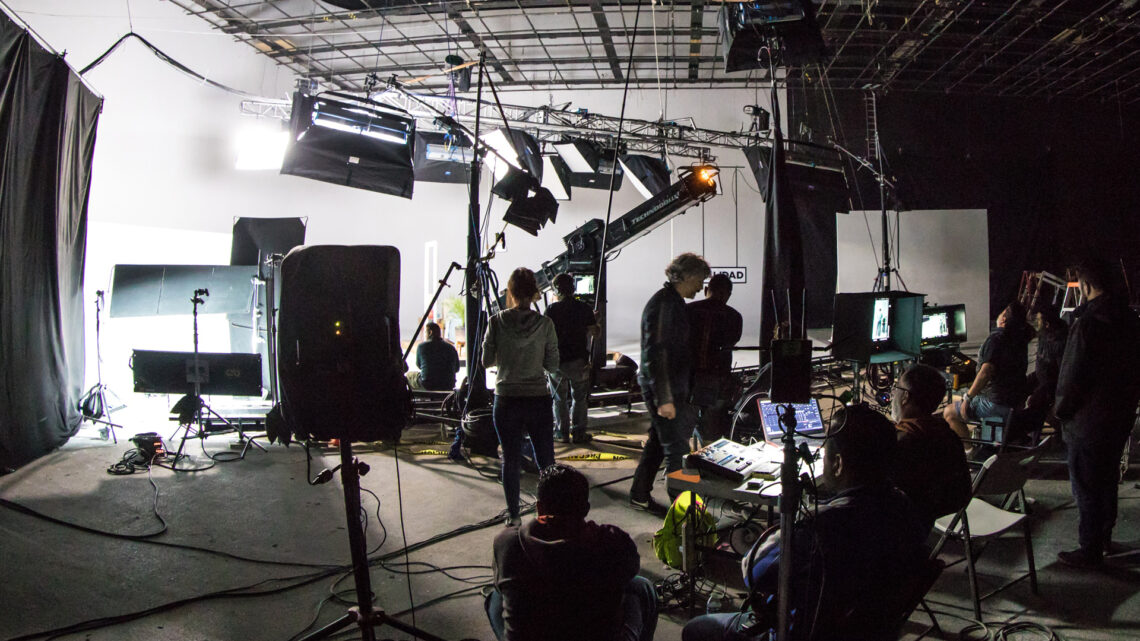Recently I shared some advice with a group of student filmmakers who are at the onset their careers.
The topic of discussion was not the usual “how to make a film”, but rather “how to build a long term career in filmmaking”. This is something we don’t talk about enough.
Our discussion was quite far reaching, but we kept coming back to a lot of the same ideas and themes, which I wanted to share here today.
Below are 5 truths about filmmaking that I believe are crucial for filmmakers at any stage to take into account.
1. Those who thrive have unique advantages
The reality of the film business is that it is not (and never has been) an even playing field. And that’s never been more true than today.
Many filmmakers (just like actors, producers, etc.) enter the business with some type of unique advantage that gives them an edge. Commonly, this comes in the form of nepotism / special access to the industry that provides a massive head start.
Others who are outsiders to the industry may still have similar advantages. For example, access to a trust fund or a celebrity friend who can help get their movie green lit.
A huge amount of films that get made (especially first time features with big budgets) are produced and / or directed by filmmakers with these sort of connections.
But that doesn’t mean you need to be born into Hollywood royalty to succeed. It just means you have to look for (or cultivate) your own unique edge to stand out.
I always thought the biggest advantage a filmmaker could possess is the ability to make movies consistently. Filmmaking is a very expensive art form, and most filmmakers are only able to make a handful of films. This leaves them with little chance to improve their skill.
This is why I designed a system that allowed me to produce DIY movies without restriction at any time. By optimizing for consistency, I was able to make many films in quick succession, which in turn helped hone my craft at a faster pace, and expand my network in measurable ways.
Whatever your unique angle, find it and use it to your benefit.
2. Knowledge of the film industry or film history is mostly irrelevant
I love learning about the history of film, and to a lesser extent studying the business of the industry as a whole. But I’ve also come to realize that this type knowledge has practically no impact on overall success as a filmmaker.
When starting out, filmmakers often assume they need to know it all – Who runs the agencies, what deals are getting made, which genres are hot, and so on.
The same goes for film history. They want to watch a thousand movies and develop a Tarantino-level encyclopedic knowledge of film.
But it’s important to remember that a huge number of filmmakers that succeed aren’t schooled on any of this. Most don’t know the history of every film movement that ever existed. They aren’t concerned about what deals are getting made at Cannes. They don’t spend their time fantasizing about the industry.
They concern themselves with making their own art first and foremost.
Oftentimes, the best films are made by outsiders who don’t really know what’s come before, or what’s supposed to be popular.
So by all means, study films and film history (I certainly do). But do so for your own curiosity – and don’t let any lack of knowledge prevent you from starting.
3. Only amateurs think it’s a bad idea to make a small movie
When you’re first starting out, you will get all sorts of resistance from your peers. Particularly if you plan to make a micro-budget feature film.
People will say:
“No one will see your movie…”
“You can’t succeed without star talent…”
“It’s going to look bad without a big budget”…”
These type of insecurities (or excuses) for not creating something will be projected onto you, especially by other aspiring filmmakers.
But you will almost never get pushback from working filmmakers when talking about making a micro-budget movie.
Over the many years I’ve been working in this business, I have yet to come across a single professional filmmaker who thinks its a bad idea to make DIY films. Most of them would advise you to do just that, as it’s how they were able to hone their craft and break in too.
You get a lot of unsolicited advice when you’re first starting. Make sure anything you accept is coming from a source you trust.
4. No amount of money or star talent will make your film immune to failure
To expand further on my last point…
Will big investments and celebrity casting make it more likely that your film will find an audience? Or course.
Will those elements guarantee creative or financial success? Never.
So many filmmakers won’t make their first feature until they’ve raised millions of dollars. They falsely believe they need to go big or go home, and if they don’t have enough money and resources backing them, then they will fail.
In reality, most movies fail most of the time – whether they are well financed or not. There is zero correlation between budget size and critical or commercial success, especially on the indie film level.
There’s nothing wrong with chasing after investments or name talent in your movie. If you can pull it off, more power to you. But not having those things should never be an excuse to not create.
In many cases, filmmakers unknowingly use the perpetual search for money as a safety blanket to avoid actually making something.
Ironically though, you are far more likely to make a big movie if you make a small one first. So regardless of the scope of your ambitions, the answer is always the same: Make the project you can make today.
5. You can succeed at any age, but the time to start is now
I am a huge believer that you can thrive as a filmmaker at any age. I’ve even written a whole article on late bloomer filmmakers, and outlined why I believe age (and wisdom) is a giant asset to creativity.
That said, if you desire to make movies (however old or young you may be), the time to start is right now.
Career filmmaking isn’t about making a single movie, it’s about building a body of work that shapes you as an artist. Only through making multiple films can you hone your craft, find your voice as an artist, and reach mastery in your craft.
This process can take many years or even decades – especially if you are working on a feature level.
So while it is certainly true that you can “make it” at any age, that doesn’t mean there is any reason to put off the work that matters today.
It’s impossible to know if you will hit your stride with film #1 or #10.
The only option is to start now and never look back.
For exclusive filmmaking articles every Sunday, sign up for my newsletter here!



No Comments